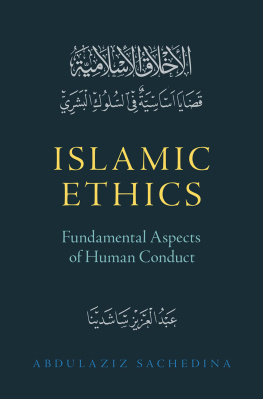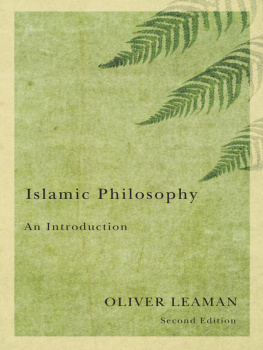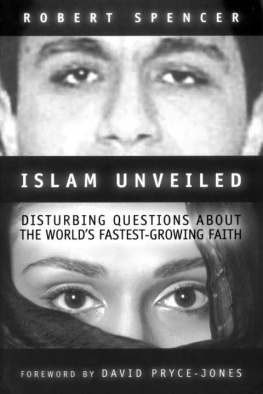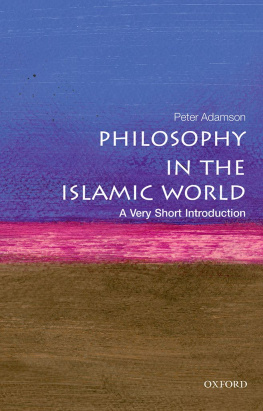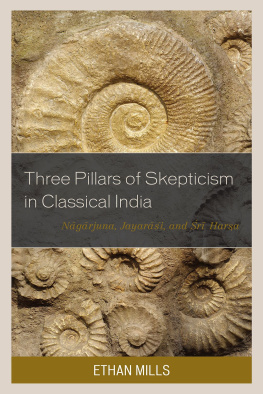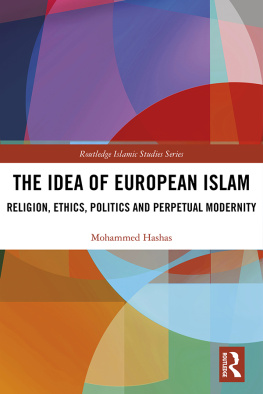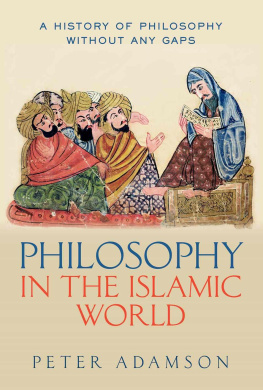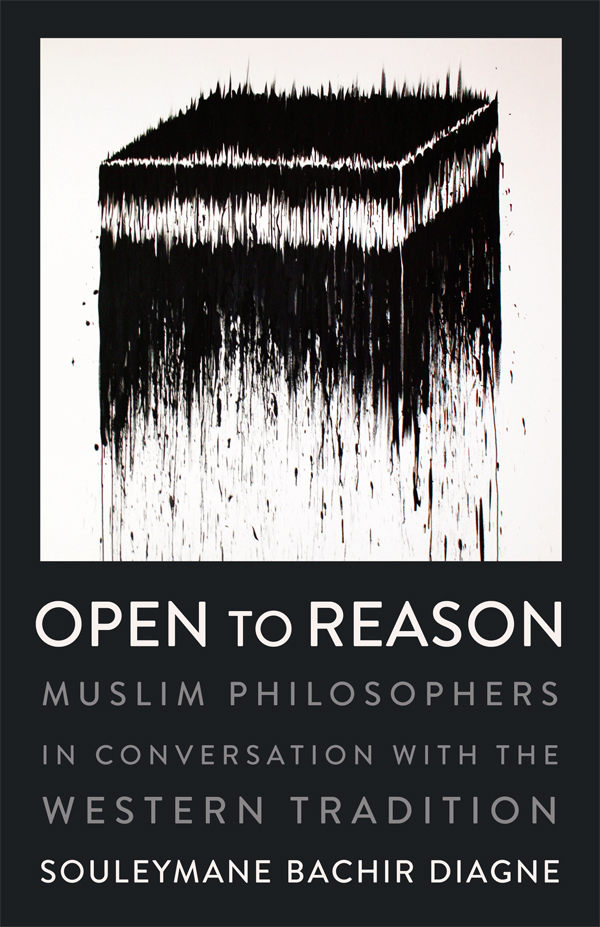Contents
Guide
Pagebreaks of the print version
OPEN TO REASON
RELIGION, CULTURE, AND PUBLIC LIFE
RELIGION, CULTURE, AND PUBLIC LIFE
SERIES EDITOR: KATHERINE PRATT EWING
The resurgence of religion calls for careful analysis and constructive criticism of new forms of intolerance, as well as new approaches to tolerance, respect, mutual understanding, and accommodation. In order to promote serious scholarship and informed debate, the Institute for Religion, Culture, and Public Life and Columbia University Press are sponsoring a book series devoted to the investigation of the role of religion in society and culture today. This series includes works by scholars in religious studies, political science, history, cultural anthropology, economics, social psychology, and other allied fields whose work sustains multidisciplinary and comparative as well as transnational analyses of historical and contemporary issues. The series focuses on issues related to questions of difference, identity, and practice within local, national, and international contexts. Special attention is paid to the ways in which religious traditions encourage conflict, violence, and intolerance and also support human rights, ecumenical values, and mutual understanding. By mediating alternative methodologies and different religious, social, and cultural traditions, books published in this series will open channels of communication that facilitate critical analysis.
For a complete list see .
OPEN TO REASON
MUSLIM PHILOSOPHERS IN CONVERSATION WITH THE WESTERN TRADITION
SOULEYMANE BACHIR DIAGNE
Translated by
JONATHAN ADJEMIAN
Columbia University Press
New York

Columbia University Press
Publishers Since 1893
New York Chichester, West Sussex
cup.columbia.edu
Copyright 2018 Columbia University Press
Comment philosopher en islam? (ditions du Panama, 2008; Philippe Rey/Jimsaan, 2013)
All rights reserved
E-ISBN 978-0-231-54617-1
Library of Congress Cataloging-in-Publication Data
Names: Diagne, Souleymane Bachir, author. | Adjemian, Jonathan, translator.
Title: Open to reason: Muslim philosophers in conversation with the Western tradition / Souleymane Bachir Diagne; translated by Jonathan Adjemian.
Other titles: Comment philosopher en islam. English
Description: New York: Columbia University Press, [2018] | Series: Religion, culture, and public life | Translation of: Comment philosopher en islam. | Includes bibliographical references and index.
Identifiers: LCCN 2018009493 | ISBN 9780231185462 (cloth: alk. paper) | ISBN 9780231546171 (e-book)
Subjects: LCSH: Islam and philosophy. | Islamic philosophy. | Philosophy and religion.
Classification: LCC BP163 .D5213 2018 | DDC 181/.07dc23
LC record available at https://lccn.loc.gov/2018009493
A Columbia University Press E-book.
CUP would be pleased to hear about your reading experience with this e-book at .
Cover design: Milenda Nan Ok Lee
Cover art: Kader Attia, Black Cube, 2005. Oil on canvas, 200 x 200 cm.
Photo Kader Attia. Courtesy of the artist and Galerie Nagel Draxler.
CONTENTS
I have to thank many people for this book. Roger-Pol Droit was the first to publish the French original. Felwine Sarr and Philippe Rey then published a new edition. Jonathan Adjemian has made the English translation thanks to the support of Mamadou Diouf, Karen Barkley, and Katherine Ewing. Above all I owe much to the discussions, during many years, with the students who took my seminars on Islamic philosophy first at Cheikh Anta Diop University in Dakar, then at Northwestern, and now at Columbia.
T his book had as its title, literally translated from its original French, How to Philosophize in Islam? The subtitle adopted here, Muslim Philosophers in Conversation with the Western Tradition , describes in a more explicit way its object. But from that history a selection is made here, as certain particular questions are spotlighted along with the authors that can help examine them: How did the encounter between Islam and philosophy happen? Does religion need philosophy? What are the implications of the Arabic language becoming philosophical as it received translations from Greek texts? What does it mean to interpret philosophically a religious narrative? Can the religion coexist with philosophical rationalism? Is mysticism in contradiction with rationalism? What does it mean to be human? What is the responsibility of the human being vis--vis nature? Is there such a thing as an Islamic State or are Muslims free to invent the political institutions that correspond to the demands of their time and allow them to live in open, democratic societies?
Obviously such questions are not simply about the history of philosophy; they also speak to our present time and converge toward the very project of the chapters that address them: to contribute to the reconstruction, for today, of a critical spirit, of a spirit of movement and pluralism as manifested in the intellectual and spiritual tradition of Islam.
Those questions are posed and examined through the reading of texts by different Muslim philosophers of the classical period, from the ninth century to the twelfth, but also of the modern period, the nineteenth century and twentieth.
Thus, after an introductory chapter presenting a brief history of the constitution of what became a tradition of philosophy in the Muslim world, the second evokes the figure of theologian and grammarian Ab Sad Al-Srf, who engaged in 922 in a famous intellectual joust with philosopher and logician Ab Bishr Matt about the universality of Aristotelian logic. Is there such a thing as a grammar of reasoning in general or shouldnt we consider that Aristotles categories are simply the categories of his own Greek language, every other language, especially Arabic, having its own logic? That debate has often been evoked in different histories of Islamic philosophy. It is of interest to examine the echo it found in the twentieth century in the reflections of Rwandan philosopher Alexis Kagam (191281) or French linguist mile Benveniste (190276), who, in 1956 and 1958 respectively, examined what Aristotles logical categories owe to Greek grammar and linguistic categories.
Philosopher Ab Ali Ibn Sn (c. 9801037), also known as Avicenna, is presented here, in , through a text attributed to him in which he carries out a systematic translation , into the language of philosophy, of a narrative central to the Muslim imaginary, which is the Ascent of the prophet Muhammad. The text offers a model of what a philosophical reading of a religious text means.
The figure of Ab Hamd al-Ghazl (10581111) is evoked in two chapters of the book () where he presents two different faces. First he offers the visage of a theologian and a mystic who attacks philosophers, accusing them of being heretics because of excessive rationalism: here Ghazl speaks on behalf of what he considers the one sect destined for salvation among all the other interpretations of Islam that existed in the troubled times when he lived. In the conclusion, on the contrary, we see his other face as a modern philosopher and an eloquent and committed advocate for pluralism, not only of Islamic sects, but also of religions more generally. Nobody expresses better than this Janus of Islam the tension that can exist between closure and an ideal of openness, as it is still at work, today, in the Muslim world.


